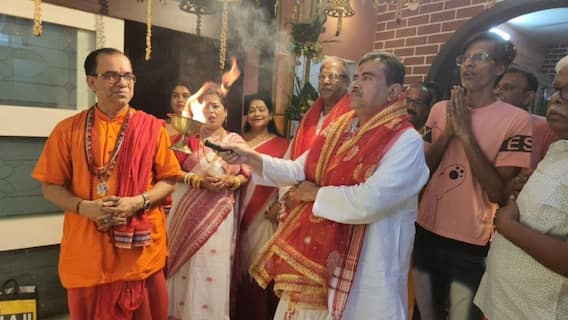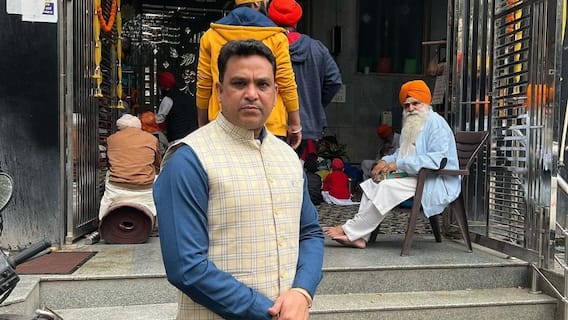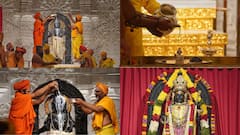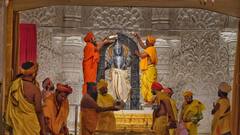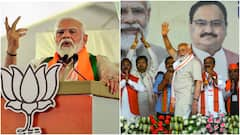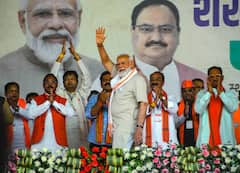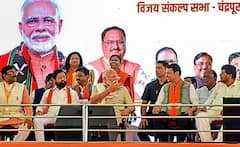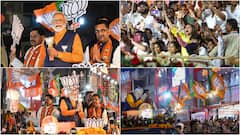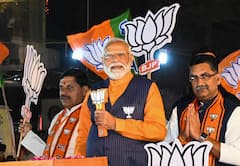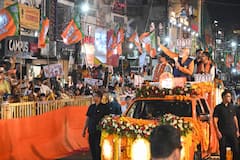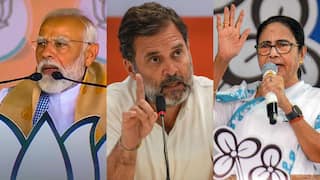Explorer
Advertisement

Would India's History Be The Same if Dara Shikoh Had Become the Emperor?
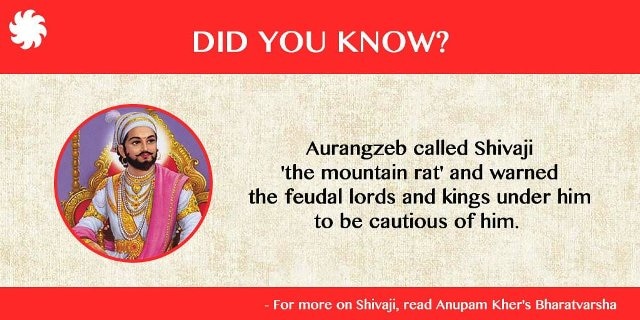
This is an excerpt from Bharatvarsha presented by Anupam Kher
Aurangzeb was seated on the emperor’s throne in the Diwan-i-Khas in Delhi. A cleric began enumerating the prince’s crimes. ‘O Great Emperor, the prince is not only guilty of conspiring against you, but he is an infidel as well. Dara has translated the Upanishads of the Hindus and emphasized the equality between Hindus and Muslims in his book which is an insult to Islam. He has given donations to Hindu temples, which makes it apparent that he believes in idol worship. Dara has got the word Prabhu, the Hindu word for God, inscribed on his ring. On top of it all, the prince claims that heaven is to be found where the clamor of mullahs is not heard. So I would contest that there is nothing wrong in killing Prince Dara Shikoh.’
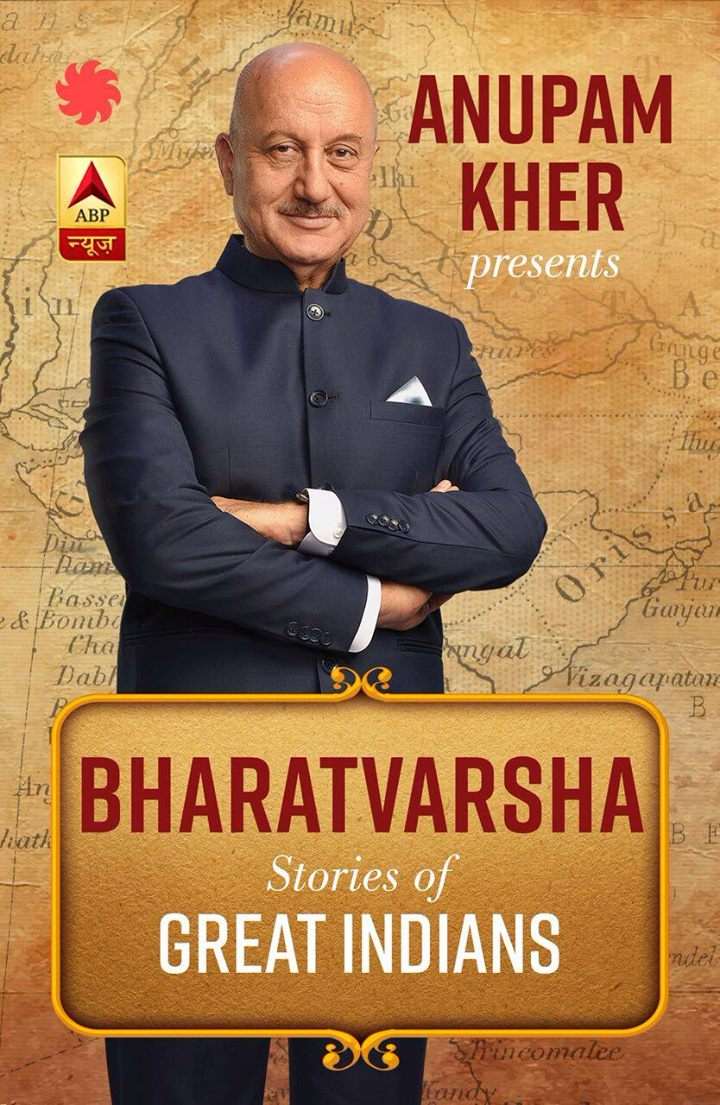 These were allegations that Aurangzeb probably wanted to hear. He seemed to consider the cleric’s argument very carefully. And then he pronounced a verdict which changed the course of Indian history. Aurangzeb, who had recently ascended the throne, announced, ‘The charges against the infidel Dara Shikoh have been found to be true. We award him the death sentence. He should be beheaded.’ The verdict given, Aurangzeb quickly got up from the throne and left the room.
The clerics of the court saluted him. Walking past the courtiers bowing to him, Aurangzeb reached his rest house where after some time a plate covered with a sheet was presented before him. Aurangzeb removed the sheet and saw the severed head of Prince Dara Shikoh. Looking at it with disgust, he said, ‘I could not bear to see the face of this infidel even when he was alive. The hapless one!’ Hapless indeed! Aurangzeb got his brother Dara Shikoh beheaded, and on seeing his severed head, called him the unfortunate one.
Even 450 years after Dara Shikoh’s beheading, India has not been able to decide what or who proved to be more unfortunate. Was it the future of India? Or Prince Dara Shikoh? Th at Dara Shikoh whom Emperor Shah Jahan had declared his successor, that Dara Shikoh who held the Holy Quran in one hand and the Upanishads in the other. The man who believed that the foundation of Hinduism and Islam was the same. Th e man who faithfully offered namaz and also wore a ring with ‘Prabhu’ inscribed on it. The man who went to the mosque and had faith in temples too, but who, in the war of succession, was murdered on the charges of being a non-believer. And the question remains unanswered even today: would the history of the Indian subcontinent have been different had Dara Shikoh become the emperor of India instead of Aurangzeb?
The answer is probably yes, it would have been different.
Dara was the eldest child of Shah Jahan and his favourite son. Shah Jahan had always wanted Dara to ascend the throne after him. However, Dara found poetry more attractive than politics. Since his aspirations were not in line with people’s expectations, the public started questioning his suitability to be a Mughal emperor. Since Dara was more inclined towards studying religious texts and spiritualism, he could become a Sufi saint but not an emperor, they said. Unfazed by such speculations, Dara immersed himself in finding a new way for himself and perhaps for India as well.
He studied religious books written not only by Islamic thinkers but also by great philosophers of other religions. From the Bhagavad Gita and the Upanishads to the writings of Sufi saints, he read them all. Dara was greatly influenced by ancient philosophers such as Aristotle and Plato, and sourced books from as far as Turkey, Greece and Egypt. Dara got so deeply absorbed in reading that he sometimes spent all night in the company of books. Dara’s education set him apart from other Mughal princes.
According to Professor Sadiq, who was with the Urdu Department at the University of Delhi, Shah Jahan appointed Mir Medak to oversee Dara’s education. Mir Medak belonged to the Sufi tradition. Prince Dara had also lived in the company of yogis. The approach of these people towards humanity and life was a mixture of Vedanta traditions and Sufism of Islam. As a result, Dara Shikoh emerged as a liberal who had love for all religions in his heart.
These were allegations that Aurangzeb probably wanted to hear. He seemed to consider the cleric’s argument very carefully. And then he pronounced a verdict which changed the course of Indian history. Aurangzeb, who had recently ascended the throne, announced, ‘The charges against the infidel Dara Shikoh have been found to be true. We award him the death sentence. He should be beheaded.’ The verdict given, Aurangzeb quickly got up from the throne and left the room.
The clerics of the court saluted him. Walking past the courtiers bowing to him, Aurangzeb reached his rest house where after some time a plate covered with a sheet was presented before him. Aurangzeb removed the sheet and saw the severed head of Prince Dara Shikoh. Looking at it with disgust, he said, ‘I could not bear to see the face of this infidel even when he was alive. The hapless one!’ Hapless indeed! Aurangzeb got his brother Dara Shikoh beheaded, and on seeing his severed head, called him the unfortunate one.
Even 450 years after Dara Shikoh’s beheading, India has not been able to decide what or who proved to be more unfortunate. Was it the future of India? Or Prince Dara Shikoh? Th at Dara Shikoh whom Emperor Shah Jahan had declared his successor, that Dara Shikoh who held the Holy Quran in one hand and the Upanishads in the other. The man who believed that the foundation of Hinduism and Islam was the same. Th e man who faithfully offered namaz and also wore a ring with ‘Prabhu’ inscribed on it. The man who went to the mosque and had faith in temples too, but who, in the war of succession, was murdered on the charges of being a non-believer. And the question remains unanswered even today: would the history of the Indian subcontinent have been different had Dara Shikoh become the emperor of India instead of Aurangzeb?
The answer is probably yes, it would have been different.
Dara was the eldest child of Shah Jahan and his favourite son. Shah Jahan had always wanted Dara to ascend the throne after him. However, Dara found poetry more attractive than politics. Since his aspirations were not in line with people’s expectations, the public started questioning his suitability to be a Mughal emperor. Since Dara was more inclined towards studying religious texts and spiritualism, he could become a Sufi saint but not an emperor, they said. Unfazed by such speculations, Dara immersed himself in finding a new way for himself and perhaps for India as well.
He studied religious books written not only by Islamic thinkers but also by great philosophers of other religions. From the Bhagavad Gita and the Upanishads to the writings of Sufi saints, he read them all. Dara was greatly influenced by ancient philosophers such as Aristotle and Plato, and sourced books from as far as Turkey, Greece and Egypt. Dara got so deeply absorbed in reading that he sometimes spent all night in the company of books. Dara’s education set him apart from other Mughal princes.
According to Professor Sadiq, who was with the Urdu Department at the University of Delhi, Shah Jahan appointed Mir Medak to oversee Dara’s education. Mir Medak belonged to the Sufi tradition. Prince Dara had also lived in the company of yogis. The approach of these people towards humanity and life was a mixture of Vedanta traditions and Sufism of Islam. As a result, Dara Shikoh emerged as a liberal who had love for all religions in his heart.
 These were allegations that Aurangzeb probably wanted to hear. He seemed to consider the cleric’s argument very carefully. And then he pronounced a verdict which changed the course of Indian history. Aurangzeb, who had recently ascended the throne, announced, ‘The charges against the infidel Dara Shikoh have been found to be true. We award him the death sentence. He should be beheaded.’ The verdict given, Aurangzeb quickly got up from the throne and left the room.
The clerics of the court saluted him. Walking past the courtiers bowing to him, Aurangzeb reached his rest house where after some time a plate covered with a sheet was presented before him. Aurangzeb removed the sheet and saw the severed head of Prince Dara Shikoh. Looking at it with disgust, he said, ‘I could not bear to see the face of this infidel even when he was alive. The hapless one!’ Hapless indeed! Aurangzeb got his brother Dara Shikoh beheaded, and on seeing his severed head, called him the unfortunate one.
Even 450 years after Dara Shikoh’s beheading, India has not been able to decide what or who proved to be more unfortunate. Was it the future of India? Or Prince Dara Shikoh? Th at Dara Shikoh whom Emperor Shah Jahan had declared his successor, that Dara Shikoh who held the Holy Quran in one hand and the Upanishads in the other. The man who believed that the foundation of Hinduism and Islam was the same. Th e man who faithfully offered namaz and also wore a ring with ‘Prabhu’ inscribed on it. The man who went to the mosque and had faith in temples too, but who, in the war of succession, was murdered on the charges of being a non-believer. And the question remains unanswered even today: would the history of the Indian subcontinent have been different had Dara Shikoh become the emperor of India instead of Aurangzeb?
The answer is probably yes, it would have been different.
Dara was the eldest child of Shah Jahan and his favourite son. Shah Jahan had always wanted Dara to ascend the throne after him. However, Dara found poetry more attractive than politics. Since his aspirations were not in line with people’s expectations, the public started questioning his suitability to be a Mughal emperor. Since Dara was more inclined towards studying religious texts and spiritualism, he could become a Sufi saint but not an emperor, they said. Unfazed by such speculations, Dara immersed himself in finding a new way for himself and perhaps for India as well.
He studied religious books written not only by Islamic thinkers but also by great philosophers of other religions. From the Bhagavad Gita and the Upanishads to the writings of Sufi saints, he read them all. Dara was greatly influenced by ancient philosophers such as Aristotle and Plato, and sourced books from as far as Turkey, Greece and Egypt. Dara got so deeply absorbed in reading that he sometimes spent all night in the company of books. Dara’s education set him apart from other Mughal princes.
According to Professor Sadiq, who was with the Urdu Department at the University of Delhi, Shah Jahan appointed Mir Medak to oversee Dara’s education. Mir Medak belonged to the Sufi tradition. Prince Dara had also lived in the company of yogis. The approach of these people towards humanity and life was a mixture of Vedanta traditions and Sufism of Islam. As a result, Dara Shikoh emerged as a liberal who had love for all religions in his heart.
These were allegations that Aurangzeb probably wanted to hear. He seemed to consider the cleric’s argument very carefully. And then he pronounced a verdict which changed the course of Indian history. Aurangzeb, who had recently ascended the throne, announced, ‘The charges against the infidel Dara Shikoh have been found to be true. We award him the death sentence. He should be beheaded.’ The verdict given, Aurangzeb quickly got up from the throne and left the room.
The clerics of the court saluted him. Walking past the courtiers bowing to him, Aurangzeb reached his rest house where after some time a plate covered with a sheet was presented before him. Aurangzeb removed the sheet and saw the severed head of Prince Dara Shikoh. Looking at it with disgust, he said, ‘I could not bear to see the face of this infidel even when he was alive. The hapless one!’ Hapless indeed! Aurangzeb got his brother Dara Shikoh beheaded, and on seeing his severed head, called him the unfortunate one.
Even 450 years after Dara Shikoh’s beheading, India has not been able to decide what or who proved to be more unfortunate. Was it the future of India? Or Prince Dara Shikoh? Th at Dara Shikoh whom Emperor Shah Jahan had declared his successor, that Dara Shikoh who held the Holy Quran in one hand and the Upanishads in the other. The man who believed that the foundation of Hinduism and Islam was the same. Th e man who faithfully offered namaz and also wore a ring with ‘Prabhu’ inscribed on it. The man who went to the mosque and had faith in temples too, but who, in the war of succession, was murdered on the charges of being a non-believer. And the question remains unanswered even today: would the history of the Indian subcontinent have been different had Dara Shikoh become the emperor of India instead of Aurangzeb?
The answer is probably yes, it would have been different.
Dara was the eldest child of Shah Jahan and his favourite son. Shah Jahan had always wanted Dara to ascend the throne after him. However, Dara found poetry more attractive than politics. Since his aspirations were not in line with people’s expectations, the public started questioning his suitability to be a Mughal emperor. Since Dara was more inclined towards studying religious texts and spiritualism, he could become a Sufi saint but not an emperor, they said. Unfazed by such speculations, Dara immersed himself in finding a new way for himself and perhaps for India as well.
He studied religious books written not only by Islamic thinkers but also by great philosophers of other religions. From the Bhagavad Gita and the Upanishads to the writings of Sufi saints, he read them all. Dara was greatly influenced by ancient philosophers such as Aristotle and Plato, and sourced books from as far as Turkey, Greece and Egypt. Dara got so deeply absorbed in reading that he sometimes spent all night in the company of books. Dara’s education set him apart from other Mughal princes.
According to Professor Sadiq, who was with the Urdu Department at the University of Delhi, Shah Jahan appointed Mir Medak to oversee Dara’s education. Mir Medak belonged to the Sufi tradition. Prince Dara had also lived in the company of yogis. The approach of these people towards humanity and life was a mixture of Vedanta traditions and Sufism of Islam. As a result, Dara Shikoh emerged as a liberal who had love for all religions in his heart.
Follow Breaking News on abp LIVE for more latest stories and trending topics. Watch breaking news and top headlines online on abp News LIVE TV
View More
Advertisement
Advertisement
Advertisement
Top Headline
Election 2024
Election 2024
Business
World
Advertisement
Trending News

for smartphones
and tablets
and tablets



